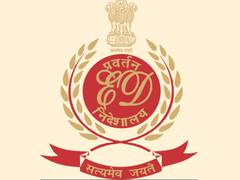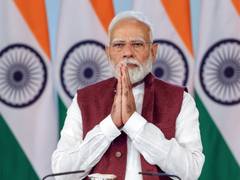“Composition of committee a total giveaway…”: Jairam Ramesh on committee formed on ‘one nation one election’
New Delhi [India], September 3 (ANI): Congress leader Jairam Ramesh on Sunday took a jibe at the central government over the formation of a high-level committee by the Centre on ‘One Nation, One Election’ to examine and make recommendations for holding simultaneous elections in the country.
Ramesh said that the composition of the committee is a total giveaway.
Taking to ‘X’, the Congress leader said, “The High-level Committee on what is called “One Nation One Election” is a ritualistic exercise, the timing of which is highly suspect. Its terms of reference have already determined its recommendations. The composition of the Committee is also a total give-away and the Leader of the Congress in the Lok Sabha @adhirrcinc (Adhir Ranjan Chowdhary) last night very rightly refused to be part of it”.
The high-level committee, headed by former President Ram Nath Kovind, comprises Home Minister Amit Shah, Congress leader Ahir Ranjan Chowdhury, former Leader of Opposition in Rajya Sabha Ghulam Nabi Azad, former Finance Commission Chairman NK Singh, former Lok Sabha Secretary General Subhash C Kashyap, Senior Advocate Harish Salve and former Chief Vigilance Commissioner Sanjay Kothari.
However, Congress leader Adhir Ranjan Chowdhary on Saturday wrote to Home Minister Shah refusing to be a part of the committee.
“The sudden attempt to thrust a constitutionally suspect, pragmatically non-feasible and logistically unimplementable idea on the nation, months before the general elections, raises serious concerns about the ulterior motives of the government”, the letter read.
The committee has been set up months before assembly polls in five states and ahead of Lok Sabha polls next year.
Parliamentary Affairs Minister Pralhad Joshi had informed about the constitution of the committee on Friday.
“Right now, a committee has been constituted. A report from the committee will come out which will be discussed. The Parliament is mature, and discussions will take place, there is no need to get nervous. India is called the mother of democracy, there is always an evolution. I will discuss the agenda of the Special session of Parliament,” he said.
Simultaneous elections for the state assemblies and the Lok Sabha were held till 1967. However, in 1968 and 1969 some legislative assemblies were dissolved prematurely followed by the dissolution of the Lok Sabha in 1970. This forced a change in electoral schedules for the states and the country.






